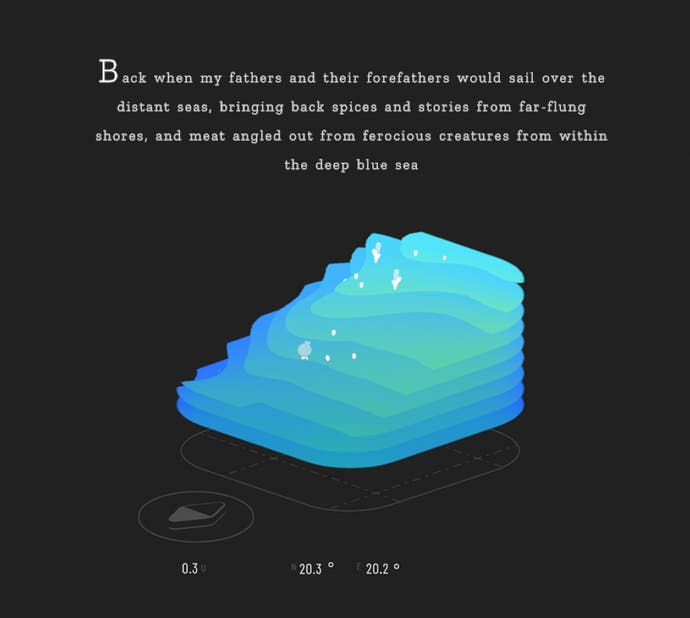Making a place from just a handful of pieces
Skim city.
As far as I can tell, the food writer Jonathan Gold, who died last year, only ever published one book. Luckily, it's a book that I could read forever.
Counter Intelligence is an alphabetised collection of his reviews of restaurants in Los Angeles. Gold liked the kind of places that other critics didn't go to. The classic Gold restaurant, in fact, is probably in a mini-mall next to a laundry or a tattoo place, and only takes cash. Through decades of diligence and perception, he proved that you can cover a whole world of cuisine in a single city, as long as the single city in question is Los Angeles.
There's a quote on the cover of my copy from Ruth Reichl that sums up the appeal: "You could read [this book] like a novel and be very satisfied," she says. I love that line. Because I do read this book a bit like a novel, a novel in which LA is the main character. And it makes me think about the way that we encounter places in the real world, and in games. It makes me think about the way these places are constructed.
I've been to a lot of places in games. I've lawn-mowered Ubisoft cities for their icons. I've screwed around in the toyboxes of Just Cause and Crackdown, and I've solved or try to solve the spatial Rubik's Cubes of Dark Souls and Bloodborne. I've read my way through crypts and haunted houses in Fighting Fantasy books, and a while back we even talked a path into a magical fortress in a game of Dungeons & Dragons in the office. (Okay it was Labyrinth Lord, but close enough.)
What's similar about all these places, I think, is that they're creatures of cumulative effect. Take a city in something like Marvel's Spider-Man. You get the buildings in place, then you add the traffic flows, the citizens, the weather and the sky box. You throw in missions and collectables. You add random dialogue on the streets. Somewhere in amongst all this, a collection of different things become Manhattan.
But what if you didn't do as much as that? What if you chose a couple of elements and built the place from there? Jonathan Gold mapped LA with nothing but restaurants. I read the book and I feel like I'm there, feel like I'm exploring. My grandfather used to draw maps of his neighborhood based on the nesting habits of birds. Even now, I am back in his garden whenever I think of that, staring up at giant trees and hearing the cheering call of wood pigeons.
I love this idea: a place that has been carefully sliced and diced, like a Sudoku grid where only the odd numbers are present but you still get a bit of structure from them. Minimalist world design, tilted world design! Happily, I have been playing something on and off like this all week. Though playing is probably the wrong word.

The Library of Babble is new on Itch at the moment. When you load it up it offers stacked layers of bloomy summer cocktail colours, patterns emerging and landscapes rising and falling as you move around with the WASD keys. (Such is the spell of the game that I just had to check it actually is the WASD keys.) There is something papercrafty about it. The colours change, the landscape evolves, and co-ordinates at the bottom of the screen give you a sense of where you are.
And the reason the coordinates have anything to actually coordinate is because every now and then as you scroll around you see a black arrow, and a quote appears on the screen. The quotes are short and often rather Delphic. The last one I encountered read: "Sometimes it feels like you and I are the only people here." I know, right?
Every now and then a quill fills up at the top of the screen and you can add a sentence of your own. I have had to make many decisions in video games. I have had to choose who lives and who dies and how the kingdom is run and what this or that city should specialise in and whether I should go to war with Belgium. But I have never had anything to do that felt quite as difficult as working out what to type in Library of Babble. What to add to the texture of this thing without ruining it.
It took a long time for me to understand that this Library is a place. It has landscape, sure, and coordinates. But it also has these little spars of text, standing here and there like trees or rocks. I rove around and read what others have written and think about adding something myself. The place is so sparsely sketched in, but I feel like I know exactly where I am.
And I love it, I think. I love it for its sparseness, for the manner in which it builds itself out of so few elements. In games we are often about more, more, more. This is such a trite thing to say by this point, so obvious that I almost feel ashamed typing it. But inside that thought is another: I love to look the other way every now and then. Here is a something made from a handful of pieces - and all the pieces matter.










